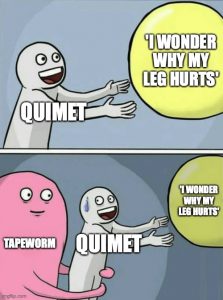For this weeks book, I read The Old Gringo, by Carlos Fuentes. To be honest with you, I found this book to be a little bit confusing, but for a few different reasons.
At the beginning of my reading, I found the old gringo’s motivation to be a bit strange; he has come to Mexico to die? Once I got more into the reading, I found myself affirming that Bierce (the old gringo) has very little to live for. It’s even exemplified on page 45 of my copy, in which the main character says, “To the earth and sky alike, to the vegetation of the desert, to whatever took form in sense or consciousness, this incarnate suffering addressed that silent plea: ‘I have come to die. Give me the coup de grace’ “ (Fuentes, 45). I did not know what a ‘coup de grace’ was until looking it up, but it actually refers to the final blow given to a wounded person or animal in order to kill them. Even the main character acknowledges that this is the final thing he wants to finish his life off. That really speaks to the characters life, Bierce seems relatively well thought out in his actions and decisions, and it’s interesting that Arroyo finds that within Bierce too. The Old Gringo’s reasoning as to why he’s come to die is gone into depth later in the novel, but I found it really telling, and a bit of a sad reveal into Bierce’s life.
Now, to discuss Harriet Winslow, who is another interesting character in this novel. Originally when I was introduced to her, I found her to be sort of naive; she spent her time thinking that the Miranda’s would come back to their burning hacienda (the Miranda’s being her employers). There was also a line in the novel in which Winslow said that coming to Mexico was her ‘duty’, and that sort of made me think about what her motivation was; why did she choose Mexico, to teach the children who were going to be a ‘challenge’ for her? I know we receive quite a decent amount of her backstory (with her beau Mr. Delaney, the death of her father), but I want to know exactly why this American girl made this decision. It sort of reminds me of Bierce’s motivation; Bierce comes to die, to fight in the Mexican revolution. Harriet comes to Mexico as a new thrill (or ‘cheap thrill’ as a line in the book puts it); could that also be a motivator for Bierce?
Another aspect I found to be a little confusing was the relationships between Harriet and Bierce, and Harriet and Arroyo. I did not know if Harriet and Bierce’s relationship was one of a father and daughter, or a romantic one. Furthermore, I found that Harriet and Arroyo’s relationship was very confusing, because I did not know if she felt affection, anger, hatred (or a mixture of all) towards him. After some thinking, I wonder if the bit of confusion I was feeling about these relationships was intentional, and Fuentes knew how he was setting these connections up.
Something that I found when I was doing a bit of research on the book was that Fuentes wrote this book over about 20 years; I don’t know if it is just the effects of a good book and author, but there were some lines that I found were very wise and seemed to be the reflection of someone with life experience. One that particularly stood out to me was spoken by the old gringo, in which he says: “the only way you escape corruption is to die young.” I know that’s spoken by an older character in the novel, but it feels so enriched with Fuentes’ life experience. A question I would like to leave you is this: Do you think that The Old Gringo would be able to exist as a novel if Bierce’s motivations were different? To further elaborate upon this question, do you think that it would be possible for this novel to exist if Bierce did not want to die?
